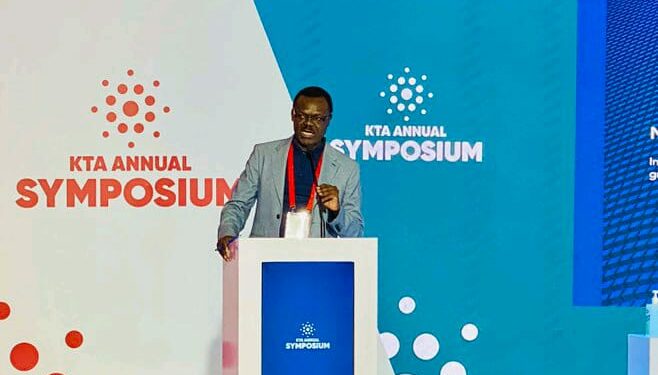The National Social Security Fund (NSSF) has announced an all out women Hi-innovator initiative to stimulate participation of the female gender in business, which will take effect in November this year.
This announcement was made by the NSSF deputy Managing Director Mr Patrick Michael Ayota on October 21st, in which he appealed to Small and Medium Enterprise (SME) owners across the country to embrace the Hi-innovator initiative, saying it breeds impressive results in terms of job creation and defusion of high attrition rates for young start-ups.
Mr. Ayota was addressing panelists, high end government policy makers, permanent secretaries, heads of government parastatals, economists, lawyers, representatives from civil society organizations, finance and planning sector in addition to academicians while delivering his keynote speech during the 5th annual KTA Symposium at Speke Resort Munyonyo.
It was a two-day symposium, which ran from October 20th, to 21st, tailored under the theme; “How Intellectual Property, Digital Trade and 41R can facilitate an inclusive and robust digital economy”, with major focus put on discussing Uganda’s trajectory to achieving National Development Plan (NDP) III goals.
It should be noted that the Hi-innovator initiative which is a brainchild of NSSF and Mastercard foundation has provided financial aid on top of practical entrepreneurship training to more than 75,000 youth in Uganda, an important strategy for survival and scaling of small businesses.
It is also an intentional move by NSSF, to shower up sources of income for business minded individuals, which will inturn inspire them to save their surplus incomes with this workers’ entity.
Tailored towards creating a vast number of jobs to outdo the challenge of unemployment, the Hi-innovator comprehensive financial empowerment program is also aimed at ensuring the future survival and flourishing of NSSF, according to Patrick Ayota.
“We did a long term view up to around 2045, and realized NSSF has begun to decline up to death, unless we intervene and do something in terms of creating jobs, so we can create members for our own future and that’s the story of the Hi-innovator,” said Patrick Ayota.
“The Hi-innovator was just to help us. Instead of waiting for people to come and save with NSSF, by the way we have a purpose. Our purpose as a company is to make lives better by making savings a way of life,” he added.
After realizing that Covid-19 took a heavy toll on earnings of Ugandans, experts at NSSF came up with a bold idea to resuscitate crumbling businesses in the aftermath of the pandemic to ensure the country’s economic recovery, through building capacity and wilingness for Ugandans to save, which explains the initiation of the Hi-innovator program.
The intervention was carefully crafted by experts at NSSF in close collaboration with Mastercard foundation, after a careful analysis of the ecosystems in the country and how they work in tandem with job creation, after which it was realized that SMEs are major agents of employment opportunities.
“They are created through SMEs, your young startups have chances and potential of creating jobs, and that ecosystem has four stages; the idea stage, where someone has a business idea which can be amplified by advice from experts at several incubation centres spread throughout the country, the commercial stage, the scaling stage and the piloting stage.”
According to Patrick Ayota, it was realized that the piloting stage presents cut-throat challenges for young innovators, due to the risk averse tendency of funders and this accounts for high attrition rates of SMEs.
With that realization therefore, NSSF’s intervention, the Hi innovator scheme is intended to aid young start-ups at the piloting stage by building potential for scalability, profitability and sustainability.
In this initiative, USD 10 million was set aside to help small but growing businesses, with NSSF contributing USD 5 million, just like Mastercard foundation for a period of 5 years, meaning that each year is apportioned USD 2 million.
Also important to note, each SME that is shortlisted after enroling into the online academy bags USD 20, 000, and the target is 500 start-ups by the year 2018, 100 starts to scale and 132,000 jobs created, according to the information supplied by Patrick Ayota, during the symposium.
The program has immensely benefited business minded individuals since August last year, with a total of 110,839 firms being formalized. 30% of the participants were from the central region of Uganda. The intervention has also created an exciting total of 1,700 jobs in the last 14 months.
Mr Ayota said these funds are availed to running businesses, which are premised on adding value to local products and have potential for profitability, scalability and sustainability.
Do you have a story in your community or an opinion to share with us: Email us at editorial@watchdoguganda.com













